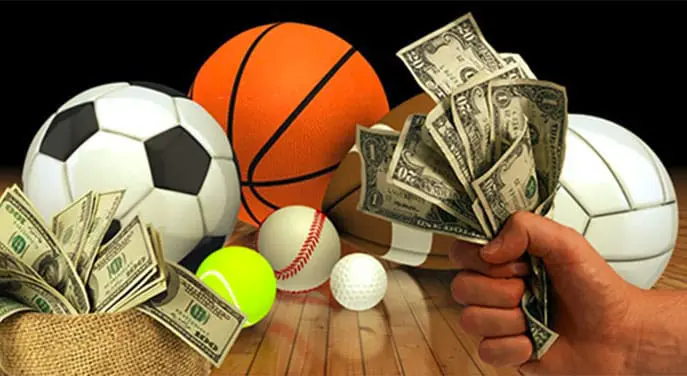The Cognitive House Edge: Why the Smartest Gamblers Bet Against Their Own Brains
November 20, 2025

The global online gambling market is projected to exceed $105.5 billion in 2025. In the U.S. alone, gross gaming revenue jumped 8.5% in the first two months of 2025 compared to the previous year. These are built on a precise, mathematical house edge and, more profoundly, on a deep, intuitive understanding of human psychology.
We are wired to lose.
For decades, gambling tips have focused on external factors: mastering basic strategy in blackjack, understanding pot odds in poker, or finding the loosest slots. This advice misses the point. The most significant opponent a gambler faces is the three-pound-mass of neurons between their own ears.
The real house edge is cognitive. The most successful casino patrons are those who master the deeply ingrained, irrational biases of their own minds.
The Architecture of Irrationality
The casino floor is an arena engineered to exploit predictable flaws in human reasoning. These mental shortcuts, or cognitive biases, served our ancestors well on the savannas. In the face of a modern roulette wheel, they are a financial liability.
The most famous of these is the Gambler’s Fallacy. This is the deep-seated belief that a streak of a particular outcome makes the opposite outcome more likely, or “due.” After a roulette ball lands on black six consecutive times, the brain screams that red is an almost certainty.
It is not. The wheel has no memory. The probability of red remains exactly 47.4% (on an American wheel) on the next spin, just as it was on the last. The universe does not “balance its books” on a short-term timeline. This bias stems from our “law of small numbers,” a tendency to assume a small sample size (a few spins) must reflect the properties of a large one (infinite spins).
A more subtle and expensive bias is Loss Aversion, a cornerstone of Nobel laureate Daniel Kahneman’s work. His research demonstrated that, for most people, the psychological pain of a loss is roughly twice as potent as the pleasure of an equivalent gain. Losing $100 feels far worse than winning $100 feels good.
This single principle explains the most destructive behavior in gambling: “chasing losses.” When a player is down $500, their rational mind knows the logical play is to stop. But the pain of that $500 loss is overwhelming. The brain shifts from seeking pleasure (a win) to desperately seeking to erase pain (get back to even). This triggers a profound shift in risk tolerance. The player who was betting $25 a hand suddenly starts betting $100, taking bigger risks in a frantic, irrational attempt to undo the loss. The “break-even” point becomes a dangerous, magnetic beacon that pulls them deeper into the red.
This psychological flaw is amplified by neurobiology. Modern research shows that “near-misses,” like seeing two 7s and a bar on a slot, activate the same dopamine-releasing reward pathways in the brain as an actual win. The machine is designed to make you feel like you almost won, over and over. Your brain’s reward system fires, reinforcing the very behavior that just lost you money. You are biologically conditioned to continue.
The Audit: A New Strategy for 2025
You cannot renegotiate the 5.26% edge on a roulette table. It is mathematical law. But you can renegotiate your cognitive edge. The only truly effective strategy you can use at Vave Casino Online is to build a defense against your own hardwired impulses.
Reframe the Cost
The Sunk Cost Fallacy is close to loss aversion. To defeat it, you must stop thinking of your gambling budget as an investment. It is the cost of entertainment. When you buy a $150 ticket to a concert, you do not expect to get that money back at the end of the night. It was the price of admission. A gambling budget must be treated the same way. The money is “spent” the moment you decide to play. Any winnings are a fortunate rebate on an expense, not a return on investment. This reframe neutralizes the pain of a loss and short-circuits the urge to chase.
Use “Commitment Devices”
The human brain is excellent at long-term planning but terrible at short-term impulse control. Acknowledge this. Before you place a single bet, set rigid, non-negotiable limits. This means a cash-only budget (leaving cards at home) or using the digital deposit and loss-limit tools now mandated on most 2025-era online platforms. This “commitment device” is a contract you make with your rational, pre-casino self to protect you from your irrational, in-casino self.
Audit Your Language
The final step is to become mindful of your internal monologue. When you hear yourself thinking “I’m due for a win,” “This machine is hot,” or “My luck is about to turn,” recognize it for what it is: a cognitive distortion. It is a story your brain is telling you to make sense of randomness. It is not data. Simply identifying the thought allows you to create a space between the impulse and the action. In that space, logic can find a foothold.
The gambling industry thrives because it knows its patrons better than they know themselves. It has perfected the art of leveraging our ancient, predictable irrationalities. The only way to walk away a winner is to stop playing their game. Stop trying to beat the odds. Start by beating your own brain.
January 23, 2026
HAYES BROTHERS SEARCH FOR NEXT STAR
THE Australia Day weekend shapes as a pivotal one for the Hayes brothers as they look to find their next flagship galloper, a position which has been filled by Mr Brightside for several years Mr Read MoreJanuary 19, 2026
MAHER’S DAY OF DOMINATION
Saturday was a red-letter day for trainer Ciaron Maher, but in terms of the bigger picture for this year, the win of Saint George at Flemington may have been the most important one of them Read MoreJanuary 6, 2026


Tell Us What You Think Below